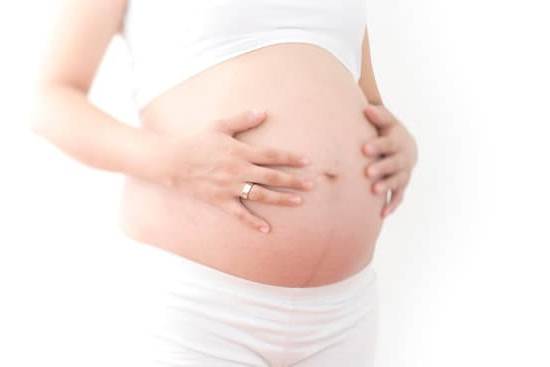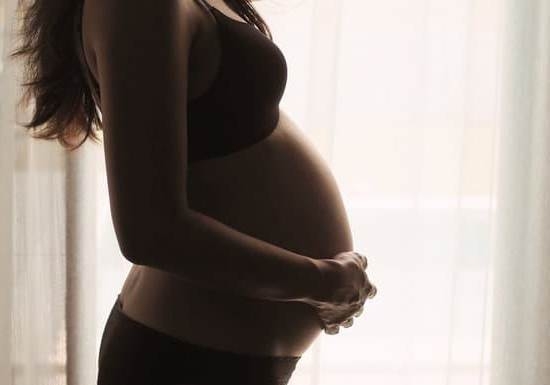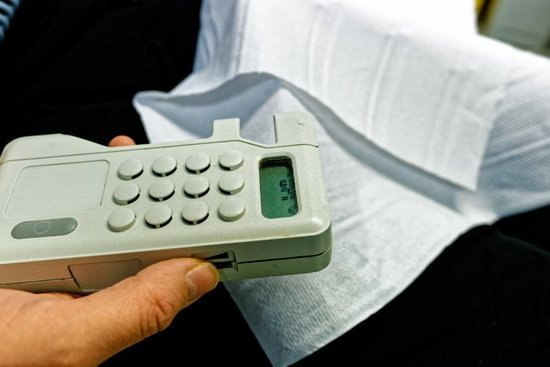Are cramps normal during pregnancy? Many women experience cramping at some point during their pregnancy. In this article, we will explore the causes of pregnancy cramps, how to differentiate between normal and abnormal cramps, tips for managing them, when to seek medical attention, common misconceptions, and real-life experiences. Understanding the nature of pregnancy cramps is important for expectant mothers as it empowers them with knowledge about what to expect and how to manage any discomfort that may arise.
During pregnancy, a woman’s body goes through a multitude of changes that can result in various symptoms including cramping. Cramps during pregnancy can be caused by a range of factors such as the stretching and expanding of the uterus, increased blood flow to the pelvic area, gas and constipation, or even Braxton Hicks contractions. It is crucial for pregnant women to understand what causes these cramps in order to alleviate any anxiety or concerns they may have about them.
It is also essential for expectant mothers to be able to differentiate between normal cramps and those that may indicate a problem. Knowing how to recognize the signs of abnormal cramping can help pregnant women seek medical attention promptly if necessary. By being informed about what is typical during pregnancy and what is not, women can feel more confident in managing their own health throughout this important time.
Understanding the Causes of Pregnancy Cramps
During pregnancy, it is common for women to experience cramps. These cramps can range from mild to severe and may occur at different stages of pregnancy. Understanding the causes of pregnancy cramps can help expectant mothers better manage this discomfort and distinguish between normal and abnormal cramping.
Normal Causes of Pregnancy Cramps
One of the most common causes of pregnancy cramps is the stretching and expansion of the uterus as the baby grows. This can lead to mild to moderate cramping, especially in the early stages of pregnancy. Additionally, hormonal changes can also contribute to uterine cramping during pregnancy.
Abnormal Causes of Pregnancy Cramps
While some cramping is normal during pregnancy, there are certain instances where cramps may indicate a more serious issue. Conditions such as ectopic pregnancy, miscarriage, preterm labor, or placental abruption can cause severe abdominal pain and should be evaluated by a healthcare provider immediately. It is important for pregnant individuals to pay attention to the severity and frequency of their cramps in order to differentiate between normal discomfort and potential complications.
Managing Pregnancy Cramps
For normal, mild to moderate pregnancy cramps, there are several techniques that can help alleviate discomfort. Engaging in gentle exercise, practicing relaxation techniques such as deep breathing or prenatal yoga, applying heat to the lower abdomen, and staying well-hydrated are all effective methods for managing pregnancy cramps. It is important for pregnant individuals to consult with their healthcare provider before taking any medication for pain relief.
By understanding the various causes of pregnancy cramps, expectant mothers can gain valuable insight into this common symptom and take appropriate actions when necessary.
Differentiating Between Normal and Abnormal Pregnancy Cramps
Pregnancy is a beautiful journey, but it also comes with its fair share of discomforts. One of the most common concerns for expecting mothers are cramps during pregnancy. It is important to understand the difference between normal and abnormal pregnancy cramps in order to ensure the health and well-being of both the mother and the baby.
Normal Pregnancy Cramps
It is completely normal to experience mild cramping during pregnancy, especially in the first trimester. These cramps may feel similar to menstrual cramps and are often caused by the expanding uterus and changes in the body as it prepares for childbirth. As the ligaments stretch and the uterus grows, some discomfort or light cramping may be felt.
Abnormal Pregnancy Cramps
On the other hand, abnormal pregnancy cramps may be more intense or come with other symptoms such as bleeding, fever, chills, dizziness, or severe pelvic pain. These could be signs of a more serious issue such as a miscarriage, ectopic pregnancy, or preterm labor. If you experience any of these symptoms, it is important to seek medical attention immediately.
It can be challenging for expectant mothers to differentiate between normal and abnormal pregnancy cramps. However, staying educated about the warning signs and seeking prompt medical advice when necessary can make all the difference in ensuring a healthy pregnancy.
Tips for Managing Pregnancy Cramps
Pregnancy is a beautiful experience, but it can also bring along discomfort and pain. One common concern among pregnant women is whether cramps are normal during pregnancy. The answer is yes, cramps can be a normal part of pregnancy as your body undergoes various changes to accommodate the growing baby.
There are several reasons why you might experience cramps during pregnancy. One common cause is the expansion of the uterus, which can lead to stretching of the ligaments and muscles surrounding it. This stretching sensation can feel like mild to moderate cramping, especially in the early stages of pregnancy.
In addition to this, hormonal changes in the body can also contribute to cramping during pregnancy. As your body produces more progesterone, it relaxes the muscles in preparation for childbirth, leading to occasional cramping. It’s important to note that while these types of cramps are typically normal, severe or persistent cramping should always be evaluated by a healthcare professional.
| Cause | Description |
|---|---|
| Uterine Expansion | The expansion of the uterus leads to stretching of ligaments and muscles. |
| Hormonal Changes | Increased progesterone levels can relax muscles, causing occasional cramping. |
When to Seek Medical Attention for Pregnancy Cramps
Experiencing cramps during pregnancy is not uncommon, and in most cases, it is considered normal. However, there are instances when cramps may be a cause for concern and necessitate medical attention. It is important for pregnant individuals to be aware of the signs that indicate that their cramps may not be normal and when to seek help from a healthcare professional.
One of the key indicators that something may be wrong with pregnancy cramps is the intensity and duration of the pain. If the cramping is severe and persistent, it could be a sign of a more serious issue such as preterm labor or a miscarriage. Additionally, if the cramps are accompanied by vaginal bleeding, fluid leakage from the vagina, or changes in vaginal discharge, it is crucial to consult with a doctor immediately.
Another factor to consider when determining whether to seek medical attention for pregnancy cramps is the presence of other symptoms. Fever, chills, dizziness, fainting, nausea or vomiting, and pain while urinating are all red flags that should prompt pregnant individuals to contact their healthcare provider.
It is always better to err on the side of caution when it comes to pregnancy-related concerns. If there is any doubt about the nature of the cramps being experienced during pregnancy, seeking medical advice promptly can provide peace of mind and ensure the well-being of both the mother and baby.
| Signs That May Indicate Problematic Pregnancy Cramps | Actions to Take |
|---|---|
| Severe and persistent cramping | Contact healthcare provider immediately |
| Vaginal bleeding or changes in discharge | Seek medical help without delay |
| Fever, chills, dizziness, nausea/vomiting | Contact healthcare provider as soon as possible |
Common Misconceptions About Pregnancy Cramps
One common misconception about pregnancy cramps is that they are always a sign of something serious. In reality, many women experience mild cramping during pregnancy that is completely normal. Another misconception is that all types of cramping during pregnancy are harmful to the baby. It’s important for pregnant women to understand that not all cramps are cause for concern.
Some pregnant women may also believe that they should avoid all physical activity if they experience cramps, but light exercise can actually help alleviate discomfort. Additionally, there is a misconception that only first-time mothers experience pregnancy cramps. The truth is that cramping can occur in any pregnancy, regardless of whether it’s the first or subsequent one.
To clarify these misconceptions, here are some key points to keep in mind:
- Cramping is a normal part of pregnancy for many women
- Not all types of cramping are harmful to the baby
- Light exercise can help alleviate discomfort from cramps
- Pregnancy cramps can occur in any pregnancy, not just the first
Understanding and dispelling these common misconceptions about pregnancy cramps can help expectant mothers feel more at ease and empowered throughout their pregnancies. By staying informed and educated on the subject, women can better distinguish between normal and abnormal cramping and seek appropriate medical attention when necessary.
Real-Life Experiences of Pregnancy Cramps
During pregnancy, many women experience cramps at some point. These cramps can vary in intensity and duration, and for some women, they may be a source of discomfort or concern. It’s important to note that every woman’s experience with pregnancy cramps is unique, and it’s helpful to hear real-life experiences from other expectant mothers. Here are some firsthand accounts of pregnancy cramps:
- Casey, 29: “I experienced mild cramping during my first trimester, and it was worrying at first because I wasn’t sure if it was normal. After speaking with my healthcare provider, I learned that some cramping can be expected as the uterus expands during early pregnancy.”
- Rebecca, 35: “I had intense cramping in the second trimester that sent me rushing to the emergency room. It turned out to be round ligament pain, which is common as the ligaments supporting the uterus stretch. It was scary at the time, but understanding the cause helped ease my worries.”
- Megan, 25: “I’ve been experiencing Braxton Hicks contractions in my third trimester, which feel like menstrual cramps that come and go. Learning about them beforehand made me feel more prepared and less anxious when they started happening.”
As shown by these real-life accounts, pregnancy cramps can be a normal part of the gestational process for many women. However, it’s crucial to always consult a healthcare provider if you have any concerns about the frequency or intensity of your pregnancy cramps.
It’s also worth noting that seeking support from other expectant mothers who have experienced similar symptoms can provide reassurance and valuable insights into managing pregnancy cramps. Sharing experiences and tips for managing discomfort can help alleviate anxiety and stress associated with this common aspect of pregnancy.
Conclusion
In conclusion, it is important for expectant mothers to empower themselves with knowledge about pregnancy cramps. While cramps are a common occurrence during pregnancy, it is crucial to understand the causes, differentiate between normal and abnormal cramps, and know when to seek medical attention. By being informed, women can effectively manage pregnancy cramps and alleviate any unnecessary worry or stress.
Understanding the causes of pregnancy cramps, such as round ligament pain, implantation cramping, or Braxton Hicks contractions, can help women distinguish between normal discomfort and potential red flags that require medical attention. Additionally, learning how to manage pregnancy cramps through techniques like rest, hydration, warm baths, or gentle exercise can provide physical relief and peace of mind.
Ultimately, knowledge is power when it comes to navigating the journey of pregnancy and understanding the various symptoms that come along with it. By debunking common misconceptions about pregnancy cramps and hearing real-life experiences shared by other expectant mothers, women can feel more confident in recognizing what is typical and when they may need to reach out to their healthcare provider for reassurance.ار كرامبس نورمال دورينغ بريغنانسي.
Frequently Asked Questions
When Should Cramping Be a Concern in Pregnancy?
Cramping in pregnancy can be normal, especially early on as the uterus expands. However, if the cramping is severe, persistent, or accompanied by bleeding, it could be a sign of a more serious issue and should be addressed by a healthcare provider.
Is It Normal to Have Period-Like Cramps While Pregnant?
It is not uncommon to experience period-like cramps during pregnancy, especially in the first trimester. This can be due to the uterus stretching and hormonal changes. However, if the cramps are severe, persistent, or accompanied by bleeding, it’s important to consult with a doctor.
What Signs Should You Not Ignore During Pregnancy?
Some signs that should not be ignored during pregnancy include vaginal bleeding or any leakage of fluid from the vagina, severe or persistent abdominal pain or cramping, decreased fetal movement, severe headaches or visual disturbances, and signs of preterm labor such as regular contractions before 37 weeks gestation. It’s crucial to seek medical attention if these symptoms occur.

Welcome to my fertility blog. This is a space where I will be sharing my experiences as I navigate through the world of fertility treatments, as well as provide information and resources about fertility and pregnancy.





